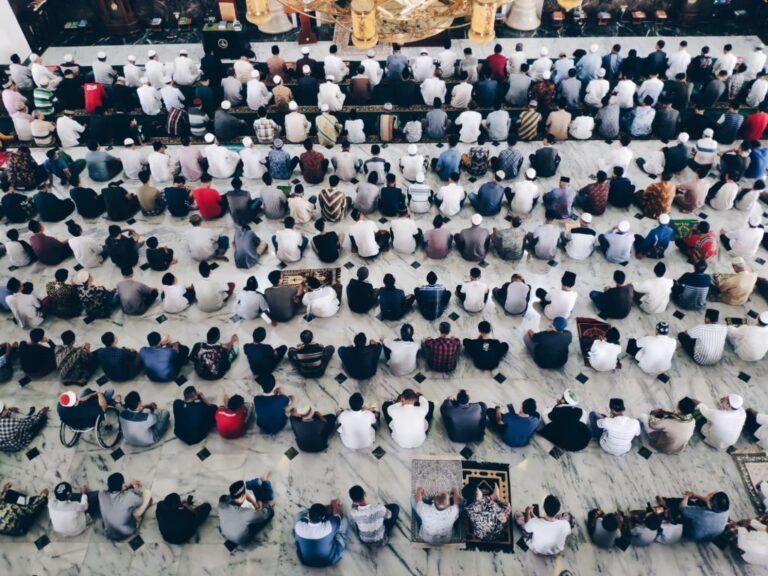Du’aa’ Essence and Value

Du’aa’ (supplication) embodies the essence of worship, for it is an expression of how one cannot do without Allah. Careful investigation of relevant Shar’i statements will show how they collectively call for insight into the essence and value of supplication; for every truth, there must be a source, and for valuable deeds, there must be rewards. In what follows, we will try to demonstrate the essence and value of Du’aa’ as manifested by statements from the Qur’an and the Sunnah.
1.1 Supplication is the Essence of Worship
In Surat Luqman, Ayah (30), Allah says, “(30) That (is so) because Allah, He is the True, and that which they invoke beside Him is the False, and because Allah, He is the Sublime, the Great.” Also, in Ayah (32), He says, “(32) And if a wave enshrouds them like awnings, they cry unto Allah, making their faith pure for Him only. But when He brings them safe to land, some of them compromise. None denies Our signs save every traitor ingrate.”
In Surat As-Sajdah, He says, “(16) Who forsake their beds to cry unto their Lord in fear and hope, and spend of what we have bestowed on them.”
In Surat Ghafir, He says, “(60) And your Lord has said: Pray unto me and I will hear your prayer. Lo! Those who scorn My service, they will enter hell, disgraced.”
In Surat Al-Baqarah, Ayah 186, Allah says, “(186) And when My servants question you concerning Me, then surely I am nigh. I answer the prayer of the supplicant when he cries unto Me. So let them bear My call and let them trust in Me, in order that they may be led aright.”
In Surat Noah, Ayahs (10-12), Allah says, “(10) And I have said: Seek pardon of your Lord. Lo! He is ever Forgiving. (11) He will let loose the sky for you in plenteous rain, (12) And will help you with wealth and sons, and will assign unto you Gardens and will assign unto you rivers.”
Prophet Muhammad says, “Supplication is worship.”(1)
1.2 The Prophet has Kept his Du’aa’ for Intercession in the Hereafter
The Prophet says, “Every prophet had a special supplication, but I have stored mine for intercession in favor of my ummah (nation/followers) on the Resurrection Day.”(2)
1.3 Du’aa’ is Prayer
In Surat Al-Isra’, Allah says, “(110)… And you (Muhammad), be not loud voiced in your salaah nor yet silent therein, but follow a way between.” Salaah’ in this Ayah refers to du’aa’, According to Aisha, “The Ayah was revealed in connection with du’aa’.”(3)
In Surat Al-Ahzab, He says, “(56) Lo! Allah and His angels shower blessings on the Prophet. O you who believe! Ask blessings on him and salute him with a worthy salutation.”
In Surat At-Tawbah, He says, “(99)…and also the prayers of the messenger as acceptable offerings in the sight of Allah. Lo! Verily it is an acceptable offering for them.” He also says, “(103) … and pray for them. Lo! Your prayer is an assuagement for them…..”
According to the Hadith, “Whenever the Prophet received people coming with their sadaqah (zakaah; voluntary charity), he prayed for them: (allaahumma, Sallee Calayhim (literally meaning ‘O Allah, pray for them, but actually asking Allah to have mercy on them.)(5)
1.4 Du’aa’ is Tawbah (Repentance)
In Surat Al-Baqarah, Allah says, “(37) Then Adam received from his Lord words (of revelation), and He relented toward him. Lo! He is the Relenting, the Merciful.” The ‘words’ are said to be this supplication: “(23)… Our Lord! We have wronged ourselves. If Thou forgive us not and have not mercy on us, surely we are of the lost!” [Surat Al-A’raaf, Ayah 23].
1.5 If Accepted, Du’aa’ is Beneficial Now and in the Hereafter
In Surat Al-Baqarah, Allah says, “(201) And of them (also) is he who says: “Our Lord! Give unto us in the world that which is good and in the Hereafter that which is good, and guard us from the doom of Fire.”
According to the Hadith, “When asked by Um-Sulaim to pray for Anas, the Prophet said: O Allah, increase his wealth and children, and bless what you bestow on him.”(6) In his prayers, the Prophetused to ‘seek refuge in Allah from torture in the grave, the affliction of Al-Maseeh Ad-Dajjal, the affliction of life and death, sins and debt.”(7)
1.6 Du’aa’ is Typical of Good People In Surat Al-A’raaf, Allah says, “(56) Work not confusion in the earth after the fair ordering (thereof), and call on Him in fear and hope. Lo! The mercy of Allah is nigh unto the good.”
1.7 Du’aa’ is Dearest to Allah
The Prophet says, “Nothing is dearer to Allah than du’aa’.”(8)
He also says, “Your Lord, the Blessed, the Exalted, is so shy and generous that He does not turn away a supplicant empty-handed if he puts up his hands asking Him (for something).”(9)
1.8 Du’aa’ Can Avert Divine Decree
The Prophet says, “Nothing can avert Divine Decree except supplication, and nothing can prolong life except good deeds.”(10) He also says, “Du’aa’ is good for what has happened and for what has not happened yet. O slaves of Allah, you, therefore, must keep supplicating.”
1.9 The Believer’s Du’aa’ is Answerable and Beneficial Sooner or Later
The Prophet said: “If a Muslim supplicates for something, Allah answers him: He may answer him immediately or store it up for him, or He may protect him from an equal amount of harm, provided that he does not pray for something sinful or for divisiveness among relatives.” One of the audience said, “Well, then we will increase supplication.” The Prophet replied, “Allah is ready to grant more.“(12)
Let us conclude this chapter with this prayer: O Allah, as we supplicate more, answer our prayers by more of Your favors: immediate answers, stored-up ones and harm averters.
(1) Sunan Abu-Daawuud, Hadith No.1479, and Sunan Attermidhiy, Hadith No. 3372.
(2) Sahih Al-Bukhari, Hadith No. 7474, and Sahih Muslim, Hadith No. 198.
(3) Sahih Al-Bukhari, Hadith No. 4723, and Sahih Muslim, Hadith No. 447.
(4) Sahih Al-Bukhari, Hadith No. 1497, and Sahih Muslim, Hadith No. 1078.
(5) Annawawi’s Adhkaar, the chapter on the prayers related to Zakaah.
(6) Sahih Al-Bukhari, Hadith No. 6378, and Sahih Muslim, Book of the Virtues of the Companions, Hadith No. 2480.
(7) Sahih Al-Bukhari, Hadith No. 832, and Sahih Muslim, Book of Mosques, Hadith No. 589. (8) Sunan Attermidhiy, Hadith No. 3370.
(9) Sunan Abu-Daawuud, Hadith No. 1488, and Sunan Attermidhiy, Hadith No. 3556..
(10) Sunan Attermidhiy, Hadith No. 2139.
(11) Sunan Attermidhiy, Hadith No. 3548.
(12) Sunan Attermidhiy, Hadith No. 3573, and Musnad Ahmad, Hadith No. 2/448.






